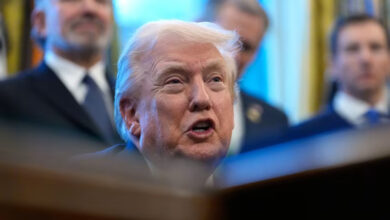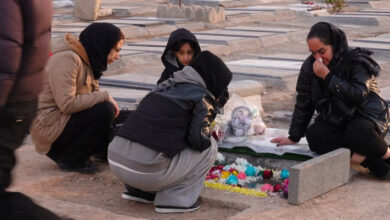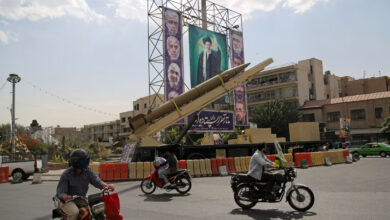Egypt’s Shia minority has announced its intention to run in the parliamentary elections slated for November, following in the footsteps of the Sunni Islamic movements that have resurged in the political arena since the January uprising.
Shias were shunned from Egypt’s political and social life throughout the 30-old year regime of ousted President Hosni Mubarak. There are no official statistics on the number of Shias in Egypt, but experts on the country’s religious minorities estimate their number between 50,000 and 80,000, a relatively small proportion of Egypt’s population of 85-million. Some were banned from traveling abroad and repeatedly arrested by the security services of Mubarak’s regime.
Some religious groups in Egypt, such as the Salafis – who follow the Sunni doctrine and became heavily involved in the Egyptian political arena after the 25 January revolution – are against the Shias establishing a political party or engaging in any political activity. They accuse them of being financed by Iran to spread the Shia doctrine in Egypt, where the majority is Sunni.
Shia leaders recently announced their intention to establish a political party, named the Unity and Freedom Party.
Since March, the Egyptian commission for political parties has officially registered the Freedom and Justice Party formed by the Muslim Brotherhood, as well as three parties belonging to the Salafi movement, despite a law passed by the ruling Supreme Council of the Armed Forces (SCAF) prohibiting the establishment of parties on a religious basis.
"As engaging in politics has become a right for all Egyptians, we must also be represented in parliament, just like any other faction," said Ahmed al-Nafees, founder of the Unity and Freedom Party.
Nafees added that his party is neither sectarian nor restricted to followers of the Shia sect. "Many recently established parties have no clear ideology or direction, but nonetheless began their activities," he said. "So why are some political parties trying to deny our rights to do the same?”
His party has almost met the requirement for the minimum number of founding members stipulated by the Political Parties' Affairs Committee in order to establish a party, Nafees added. The new law requires the founders of new parties to acquire the signatures of at least 5000 citizens from ten different governorates in order to establish a party.
Nafees added that party leaders were currently discussing plans to field candidates in the upcoming parliamentary elections.
“Even if we do not get the approval from the committee before the election date, we can run as independents by the individual candidate system," he said.
According to Nabil Abdel Fattah, an expert at Al-Ahram Center for Political and Strategic Studies, the political atmosphere is now conducive to the Shias to be represented in parliament.
Fattah expects the Political Parties' Affairs Committee to register the party, especially since Egypt's Shias do not preach mixing religion with politics, unlike some Sunni Islamist groups.
The Shia party has three main headquarters: one in Cairo; one in Mansoura, Daqahlia Governorate; and one in Zagazig, Sharqiya Governorate. The three governorates are known to possess a number of mosques frequented by Shias from across Egypt.
In 2010, Egyptian security forces monitored a number of campaigns by Shia activists promoting their doctrine in those governorates.
According to Nafees, while Shias' voting power is considerable, their social marginalization and persecution by the Egyptian authorities before the revolution made it difficult for them to form an organized political movement.
The new Shia party leaders said they were likely to form alliances with other political forces, so long as they share common visions. He added that some Sufi orders, one of which has already established a party, had compatible ideas with them, and that the Shia party would not mind forming coalitions with these groups.
Nafees added that he had already consulted with some left-wing leaders in Egypt to discuss the idea of running on a joint electoral list.
Experts say that a possible coalition between Shias and Sufis, or even one party backing the other in the upcoming parliamentary elections, is an obvious counter to the Democratic Alliance for Egypt, a large political alliance formed in early June led by the Muslim Brotherhood's Freedom and Justice Party. Altogether, it groups more than 40 parties across the political spectrum, including some Salafi parties.
According to Abdel Fattah, the alliance between the Shias and the Sufis makes sense, as both are new to the political scene and their chances of winning parliamentary seats on their own would be slim.
Sufis number about 10 million in Egypt, he added, which would give such a coalition more strength.
However, observers believe that Shias' and Sufis' political inexperience, as well as their troubled relationships with other Islamic groups, may place them in a situation similar to that of liberals, who have run into trouble mobilizing support.
"A Shia party in Egypt will antagonize all Egyptians, not only religious groups,” said Mamdouh Ismail, a leading member of the emerging Salafi political movement. “Egyptians are predominantly Sunnis, so why would they should vote for a Shia party?”
In an echo of Mubarak-era rhetoric, Ismail said that Egypt’s Shias will serve the interests of Iran, the world’s most populous Shia country.
"They are funded by Iran,” he said. “This means they will implement its agenda to spread that doctrine in the Arab region."
Iran is known to support Shia movements in the Arab world, such as Hizbullah in Lebanon, the Huthis in northern Yemen, and various political groups in Iraq and Bahrain.
Former President Hosni Mubarak previously accused the Iranians of seeking to control the region by “exporting” their revolution and spreading their doctrine in Egypt.
In an interview with the Dubai-based Al-Arabiya satellite channel on 8 April 2006, Mubarak said, “Shias in Arab countries are loyal to Iran and not to their own countries."




